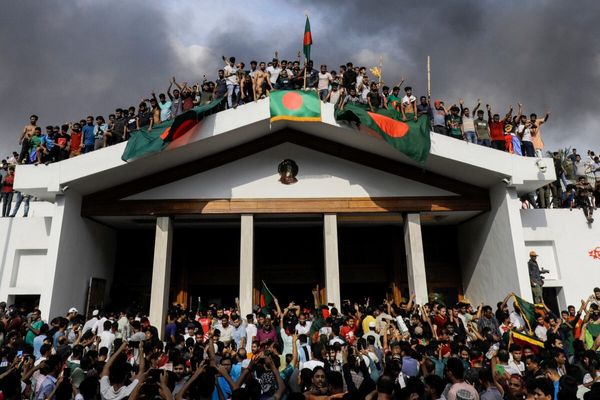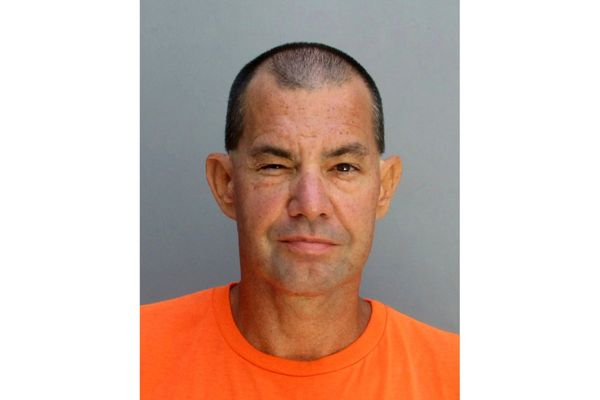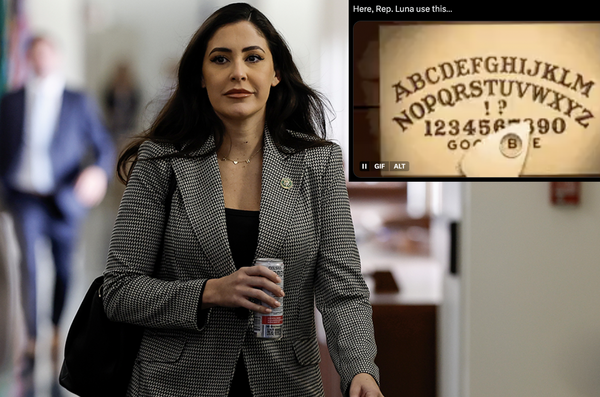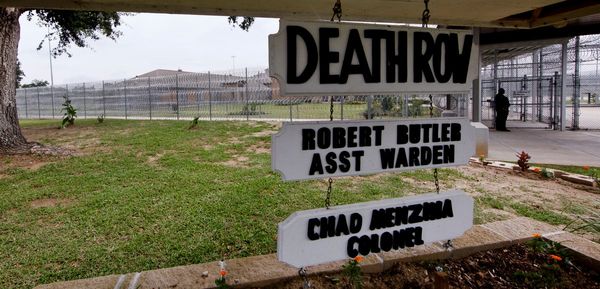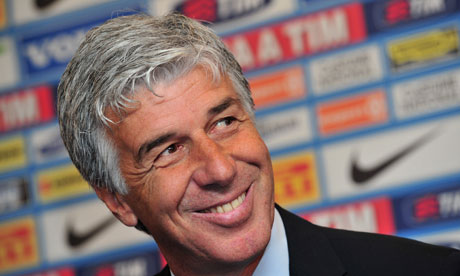
These were not the headlines Inter had hoped for on the day their new manager was unveiled. Gian Piero Gasperini was named as Leonardo's successor by the Nerazzurri last month but was only formally presented to the press in Milan on Tuesday, ahead of his first training session with the team this week. But even as he outlined his plans, the club was being dragged back into a scandal from Serie A's recent past.
"Calciopoli shock: Palazzi sinks Inter" said the front-page headline of Tuesday's Gazzetta dello Sport. The reference was to Stefano Palazzi, investigator for the Italian football federation (FIGC) and author of a new 72-page report on the 2006 match-fixing scandal. After more than a year studying fresh evidence, much of it based on phone-tap recordings, Palazzi concluded that Inter, too – and in particular their late president, Giacinto Facchetti – were guilty of sporting fraud, designed to improve their prospects in Serie A.
Inter's owner, Massimo Moratti, has rejected Palazzi's claims as "totally unacceptable", reacting with particular hostility to the allegations against Facchetti, characterising them as "offensive", as well as "stupid". His club is not expected to face the sort of punishments meted out to Juventus and Milan in 2006, due to a quirk of the Italian sporting justice system which states that any action would need to have been initiated within four years of the offence taking place.
The one move still open to the FIGC would be to revoke the title that was awarded to Inter in 2006 (when Juventus was stripped of the honour), though Moratti's belligerent stance suggests even that may not be possible without a further legal battle. The FIGC president, Giancarlo Abete, has promised a ruling on 18 July, but already there have been reports of members of the body's federal council, fearful of a backlash either way, protesting that this is not a decision they should have to take. (Raising the obvious question: if not you, then who?)
What Gasperini makes of it all is anyone's guess, the new manager steering conversation expertly back towards matters he can control when the subject was raised at his press conference. "These are painful situations," he said. "But luckily we get to think about what happens on the pitch instead."
And were it not for these latest revelations there is no doubt that the manager's plans would indeed be the centre of attention. On paper, after all, Gasperini looks an unlikely appointment for a club such as Inter – a man with only two previous senior clubs on his résumé and only one, Genoa, which played in Serie A. Having brought the Rossoblu up from the second tier in 2007, he took the club as high as fifth in 2009, yet the team had collected only 11 points from 10 games when he was sacked in November last year.
Inter fans will not have been reassured, either, by the manner in which the appointment was conducted. The club settled on Gasperini only after being turned down by Marcelo Bielsa, André Villas-Boas and Fabio Capello, three men with such diverse backgrounds and managerial styles that it was impossible to discern any connecting theme.
Others may have been troubled by the manager's Juventus background – he started his careers both as a player and a coach within the Bianconeri youth system – and all the more so now that Calciopoli wounds have been reopened. Yet it is not any of the above that seems to have given the Italian media the greatest reason for pause but that Gasperini has often deployed his teams in a 3-4-3.
"Don't take it for granted that we will use a three-man defence," Gasperini said on Tuesday and you could scarcely blame him if he sounded a bit defensive. To read certain Italian newspapers in the days since his appointment would be to infer that the manager was a one-trick pony of the highest order, a man whose tactical belief structure was so rigid it would make the Amish look open-minded.
The irony here is that the truth is quite the opposite. Gasperini has many failings and may yet prove incapable of handling the many pressures that come with coaching a team as high-profile as Inter, but rigidity is not among them. José Mourinho, indeed, once described Gasperini as the best manager he had come up against in Italy, precisely because of his adversary's willingness to adapt during a game. "Gasperini had a response to every move I made," the Portuguese said. "He is very good."
A closer look at Gasperini's time at Genoa shows that he deployed four defenders on a number of occasions, and that on many others he used fluid formations that could shift between a three- and a four-man back line. Nor, as Luigi Garlando wrote in Gazzetta, is he "allergic" to the idea of using a trequartista behind the attack – a common claim that prompted much speculation over the future of Wesley Sneijder. Although he acknowledged on Tuesday that it "is hard to tell what will happen in the next 40 or 50 days", Gasperini made it clear he would prefer the Dutchman to stay.
What we do know is that at Inter Gasperini will have more time to focus on his tactics as unlike at Genoa – where his insistence on being involved in all aspects of the club's operations saw him nicknamed Gasperson, in homage to Sir Alex Ferguson – his role is strictly to focus on coaching the first-team squad. He was not, therefore, responsible for signing Ricardo Alvarez from Vélez Sársfield, nor will he get the final say on the futures of players such as Sneijder.
How he adjusts to such a role will be fascinating to watch over the coming months, as will be his interactions with a new group of players, even if three of them – Diego Milito, Andrea Ranocchia and Thiago Motta – worked under him at Genoa. But if the future is an uncertain place for Inter, it still has nothing on the past.
